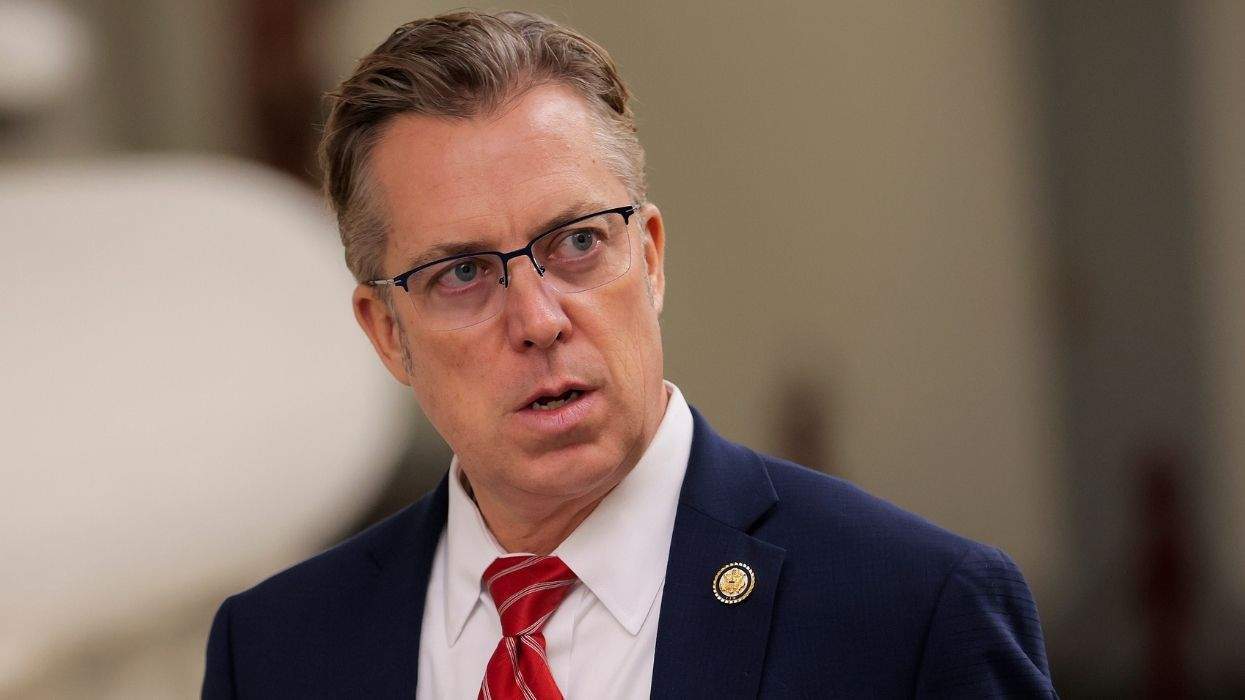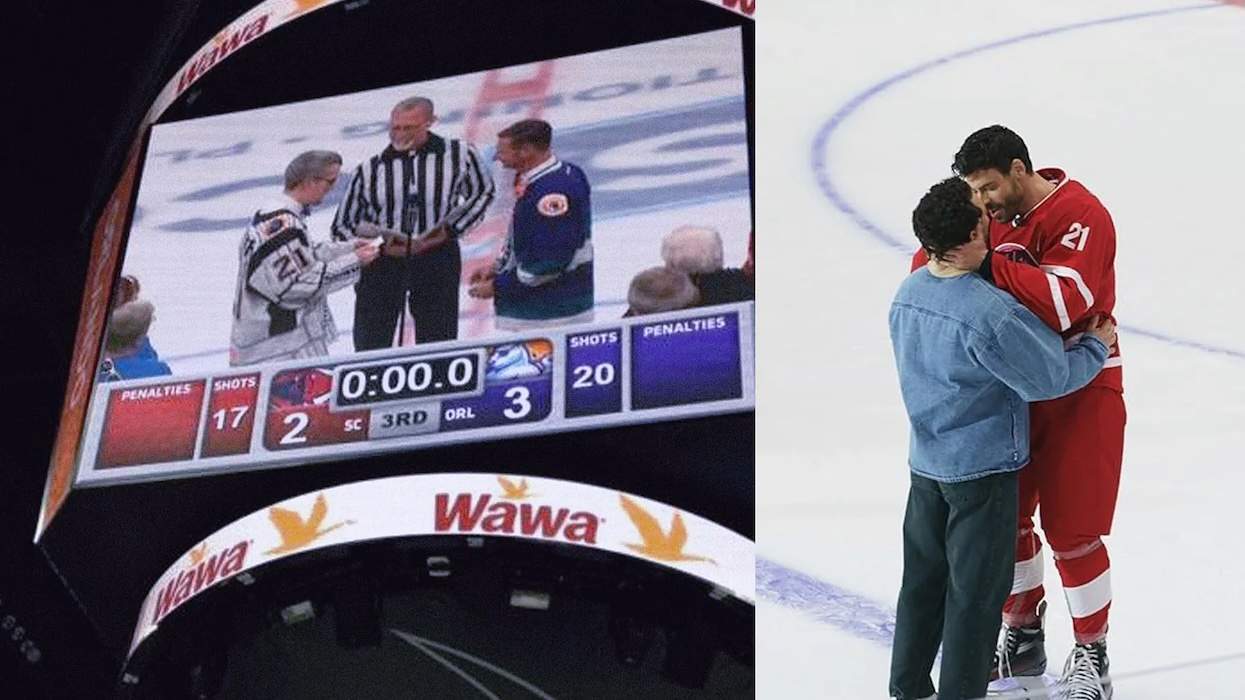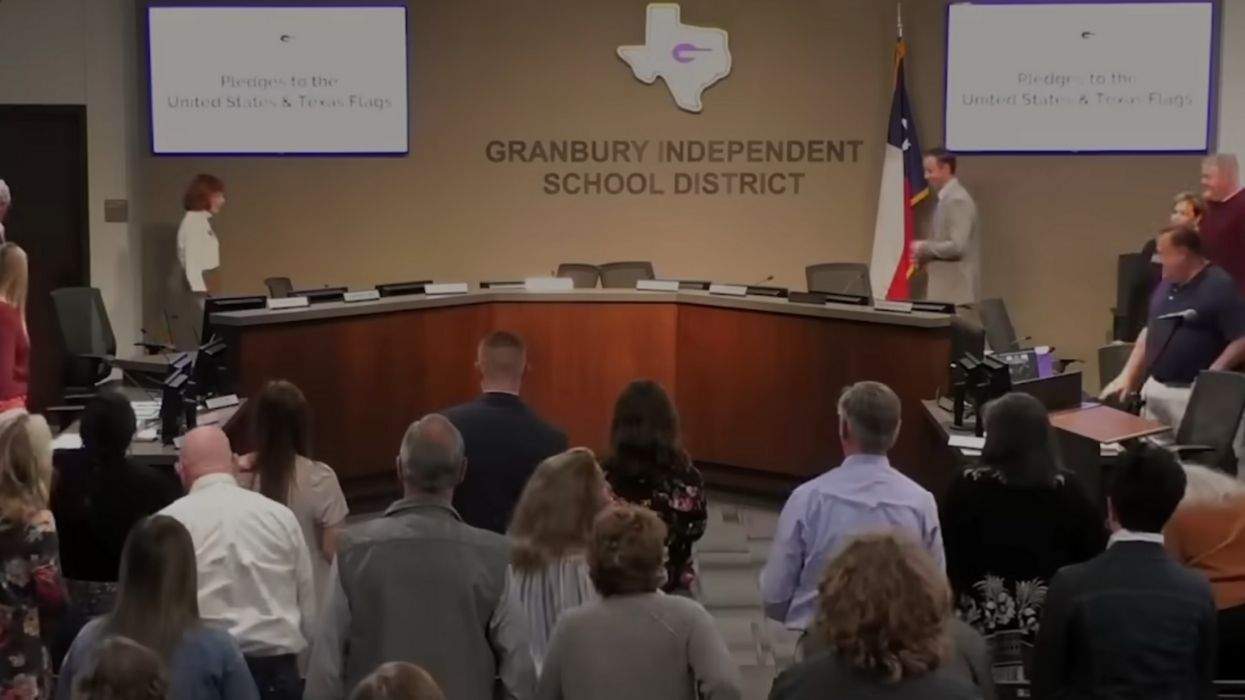Nine years after the Pulse nightclub shooting transformed a space of LGBTQ+ joy in Florida into one of the darkest sites of American tragedy, some survivors are stepping back inside—for the first and final time. This week, the City of Orlando is allowing small groups of survivors and family members of the 49 people killed to walk through the shuttered building before it is razed to make way for a public memorial.
Keep up with the latest in LGBTQ+ news and politics. Sign up for The Advocate's email newsletter.
Brandon Wolf, who barely escaped Pulse after hiding in a bathroom in 2016 as gunfire echoed around him, won’t be among them.
“I will say that the site of the tragedy is where I feel closest to the people who were stolen from me,” Wolf told the Associated Press. “For survivors, the last time they were in that space was the worst night possible. It will be really hard to be in that space again.”
Related: Orlando to honor victims, commune with survivors on nine-year-anniversary of Pulse shooting
Related: Pulse Shooting Survivor Brandon Wolf on the Meaning of June 12
Wolf has long since become one of the country’s most visible advocates for LGBTQ+ equality and gun reform. Now the national press secretary for the Human Rights Campaign, he has carried the memory of that night in Orlando into hearings, vigils, rallies, and Congressional offices. He speaks for the people who can no longer speak for themselves—and for the queer communities still living under threat.
In a statement to The Advocate, Wolf marked the ninth anniversary not just with remembrance but with defiance. “Every one of us deserves to live in a world free of the fear of hate and violence,” he said. “But nine years ago, 49 people, many of whom were both LGBTQ+ and Latine, had their lives stolen in a hate-fueled attack at Pulse Nightclub. Countless others were devastated and traumatized.” Wolf’s friends., Drew Leinonen and his partner, Juan Guerrero, died that night. Fifty-three people survived their injuries.
Related: Pulse Survivor Brandon Wolf Talks New Memoir 'A Place for Us' with Chasten Buttigieg
The nightclub’s closure has always been provisional—its doors sealed, but its presence in the nation’s consciousness is unshakable. For many who return this week, the walk-through offers a kind of suspended grief. According to the AP, some 250 survivors and families responded to the city’s invitation. No cameras are allowed. FBI agents who investigated the massacre are present to answer questions. Counselors are available to help survivors cope with the discoveries they make in those rooms.
Outside, rainbow flags and weather-worn portraits of the dead hang on the fence of a makeshift memorial. But inside, the space has remained largely untouched since June 12, 2016, when gunman Omar Mateen opened fire during Pulse’s Latin Night, in what was then the deadliest mass shooting in modern U.S. history. He pledged allegiance to ISIS. The grief he left behind pledged itself to something else entirely: remembrance.
Wolf, who finds honor in the privilege of keeping his late friends’ names alive, knows what remembrance must demand. “Today, bullies—from the White House to the talking heads—continue to stoke the flames of anti-LGBTQ+ hate, drive racist, anti-immigrant division in this country, and do nothing about easy access to guns that makes dangerous hate deadly,” he said.
“The price of hate is not theoretical; it’s missing faces at birthday parties, empty seats at dinner tables, and communities torn apart. This somber day is the time to recommit to showing up—for a safer future, for full equality, for a freer, more equal nation. And honoring those stolen from us with action.”
Related: Pulse shooting remains a grim moment in LGBTQ+ history 8 years later
The building that housed Pulse will be demolished later this year. The City of Orlando, which purchased the property in 2023 for $2 million, plans to build a $12 million memorial by 2027. The new effort follows the collapse of the onePulse Foundation, a private nonprofit launched by the club’s former owner. After years of stalled fundraising, leadership turmoil, and community mistrust, the foundation disbanded in 2023. Its $100 million museum concept has been scrapped in favor of a more modest, public-led design. Orange County commissioners recently committed $5 million to support the city’s new plan.
But Wolf is not waiting on a monument. “The building may come down, and we may finally get a permanent memorial,” he told the AP, “but that doesn’t change the fact that this community has been scarred for life. There are people inside the community who still need and will continue to need support and resources.”
Pulse has always been more than a building. For Wolf—and LGBTQ+ people around the nation—it is a site of grief, yes, but also a demand. Not to look away. Not to forget. And never to stop fighting for a world in which Pride is not a risk and being alive is not a protest.
















Charlie Kirk DID say stoning gay people was the 'perfect law' — and these other heinous quotes
These are some of his worst comments about LGBTQ+ people made by Charlie Kirk.